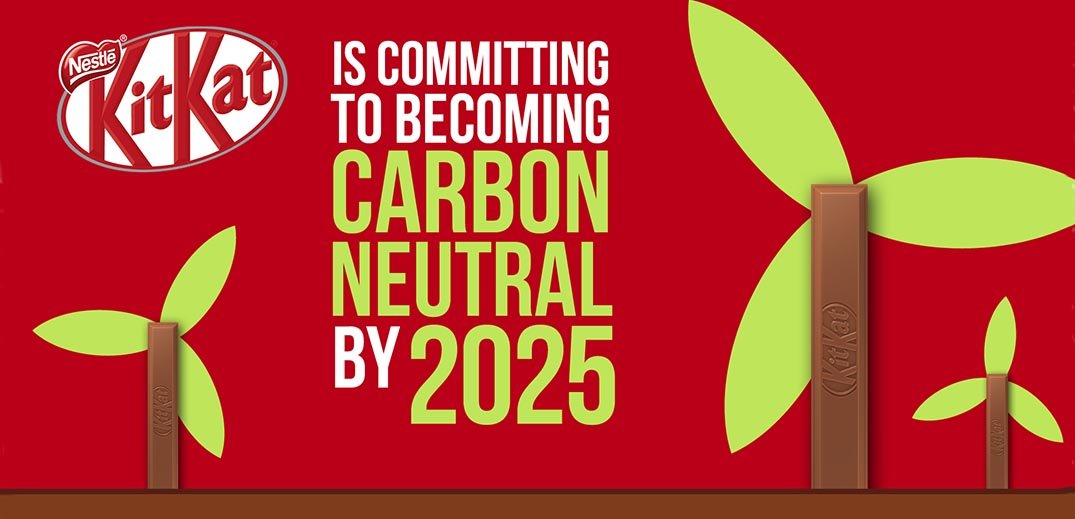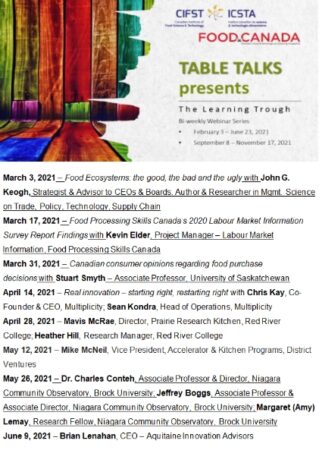
Earth Day rings in food&bev sustainability news – Flow Water, Tate & Lyle, Kitkat, Tim Hortons
Food in Canada Staff
Sustainability Specialty Foods
Flow Water has been awarded a Canada’s Clean50 Award. “Canada’s Clean50 Awards are announced annually by Delta Management Group and the Clean50 organization to recognize those 50 individuals or small teams, from 16 different categories, who have done the most to advance the cause of sustainability and clean capitalism in Canada over the past 2 years”, said Gavin Pitchford, Delta Management Group CEO.

Sustainability has been part of Flow’s corporate DNA since its inception, extending to its plantbased packaging designed to have a low carbon footprint, to its comprehensive sustainability platform and having positive social impacts.
Flow is among the fastest-growing premium spring water and wellness beverage brands in North America. It also has the highest “net promoter score” of any premium water company, which is the measure of how often customers would recommend the brand to others. Driven by its loyal customers, and celebrity partners including Flow Sustainability Ambassador, international megastar Shawn Mendes, Flow is an industry leader in a larger movement for global sustainability and wellness.
Tate & Lyle, a leading global food and beverage ingredient supplier, has exceeded its 2020 environmental targets, set using a 2008 baseline. Scope 1 and 2 greenhouse gas (GHG) emissions, generated by on-site energy use, were reduced by 25% (target of 19%), and waste to landfill was reduced by 37% (target of 30%). These environmental benefits are equivalent to the carbon captured by nearly 1 million acres of US forestry and 1,700 fewer garbage trucks taken to landfill.
The GHG emissions reduction target was delivered largely by investing in the transition to cleaner energy sources, such as replacing the coal boiler with a natural gas-fired combined heat and power system at the corn wet mill in Loudon, Tennessee (pictured). The waste target was met largely by eliminating certain waste streams from the production process by reclaiming organic solids which would otherwise have been sent to landfill.
In May 2020, Tate & Lyle set new ambitious environmental targets for 2030 for GHG emissions, waste, water and sustainable agriculture. The 2030 GHG emissions reduction targets have been validated as science-based by the Science Based Targets Initiative, meaning they are in line with the goals of the Paris Agreement in Climate Change.
Tim Hortons core menu will be free of artificial colours, flavours and preservatives by end of 2021 as part of Tims For Good sustainability platform.
KitKat, one of the world’s most popular chocolate brands, has pledged to become carbon neutral by 2025. KitKat aims to reduce the emissions generated through the sourcing of its ingredients, the manufacturing of the product and its distribution by more than 50% as part of the plan.
Most emissions occur when producing KitKat’s ingredients like cocoa and milk. The brand will reduce these emissions as much as possible through initiatives like restoring forests and supporting a transition to regenerative agriculture. For any emissions that cannot be eliminated, the brand will invest in high quality offsetting based on natural climate solutions.
KitKat is working with The Carbon Trust, a global climate change and sustainability consultancy, to measure the brand’s current carbon footprint and will complete this process later in 2021.
Print this page